.png?width=1920&name=Fastener%20Landing%205%20(1).png)
Our fastener offering covers industrial applications including truck body, utility body, and trailers; fire, rescue, and emergency vehicles; industrial equipment, buses, rail cars, and the marine industry.
Products range from standard nuts, screws, bolts, and washers to specialty structural bolts, rivets, inserts, weld fasteners, and fastening tools. Austin Hardware® is a Tier-1 Master Distributor of Huck fasteners and tools.
For a more in-depth look at Austin Hardware® and fasteners, click here:
Types of Threaded Fasteners:
The primary benefits of threaded fasteners include:
Click here to learn more about Threaded Fasteners:
The most common types of rivets include:
Click here to learn more about their common uses and industries:
Self-Clinching Fasteners are found in household appliances, electronics, medical equipment, telecom equipment, automotive and transportation markets, and many other industrial applications.
While there are innumerable variations of self-clinching fasteners, three of the primary types include:
Click Here to learn more about Self-Clinching Fasteners:
According to Steave Klein, National Sales Manager for Fasteners with Austin Hardware®, “Nails are the simplest of fasteners both in design and how they’re made. One end has a head; the other end is sharp, and they’re available in different sizes and materials. That said, there are many different types, so just as with any fastener, the application should determine the nail you choose.”
Frequently, for jobs requiring a large volume of nails and those where the space to apply them with a traditional hammer is limited, nail guns are used.
There are two primary types of Nail guns:
Click Here to learn more about Nails and Installation Tools:
Engineering360 defines industrial pins as “… varieties of fastening hardware meant to couple, align, mount, assemble or penetrate two work pieces. The operation of the pin depends on design and employment…”
Click Here to learn more about Pins:They’re installed inside a housing or bore, or into a groove on a shaft to create a shoulder which retains an assembly.
The four main styles include:
Click here to learn more about Retaining Rings:
Like most fasteners, there are many different types and sub-types, with the application ultimately driving the appropriate selection.
Click here to learn more about Washers:
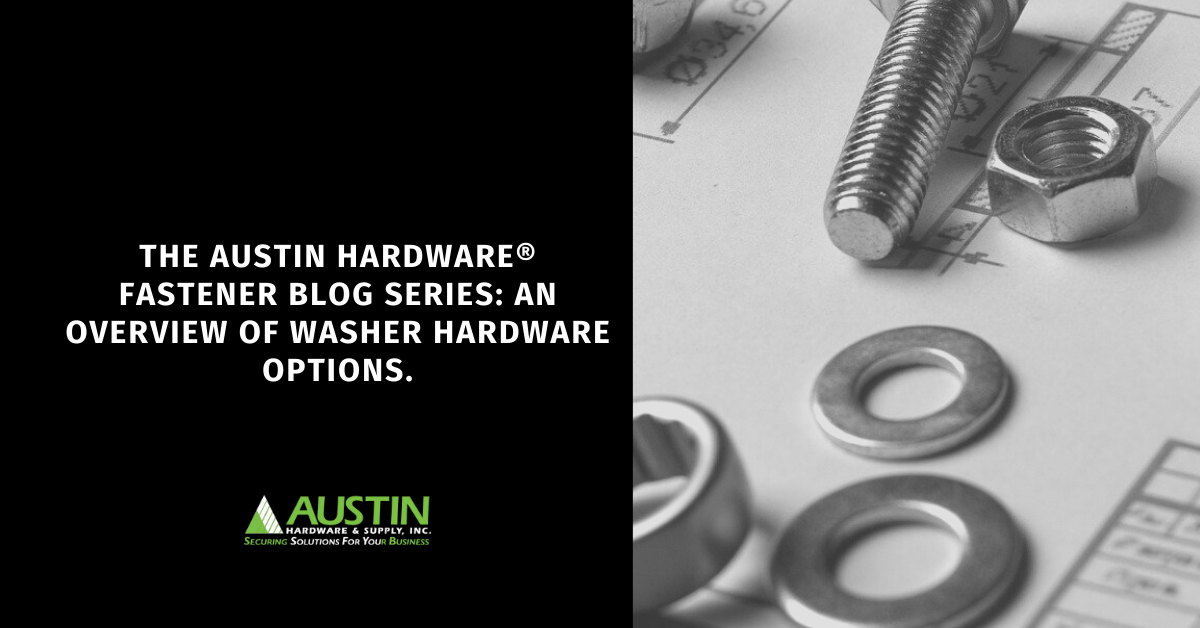
As recently as a January 2020 article by ITA Fasteners, structural fasteners are described as being, "… characterized by strong, heavy-duty materials that facilitate the construction of structures employing steel to steel connections. They are an ideal choice … for connecting one metal structure to another."
In this article learn more about:
Click here to learn more about Structural Fasteners:
Steel bolts are rated and specified by numerous certifying bodies, but the two primary associations in the United States are ASTM International (formerly American Society for Testing and Materials) and the SAE International (formerly Society for Automotive Engineers). ASTM standards for bolts and fasteners pertain primarily to construction applications, while SAE deals with machinery and automotive applications as well as those for original equipment manufacturing.
Click here to learn more about Bolts:
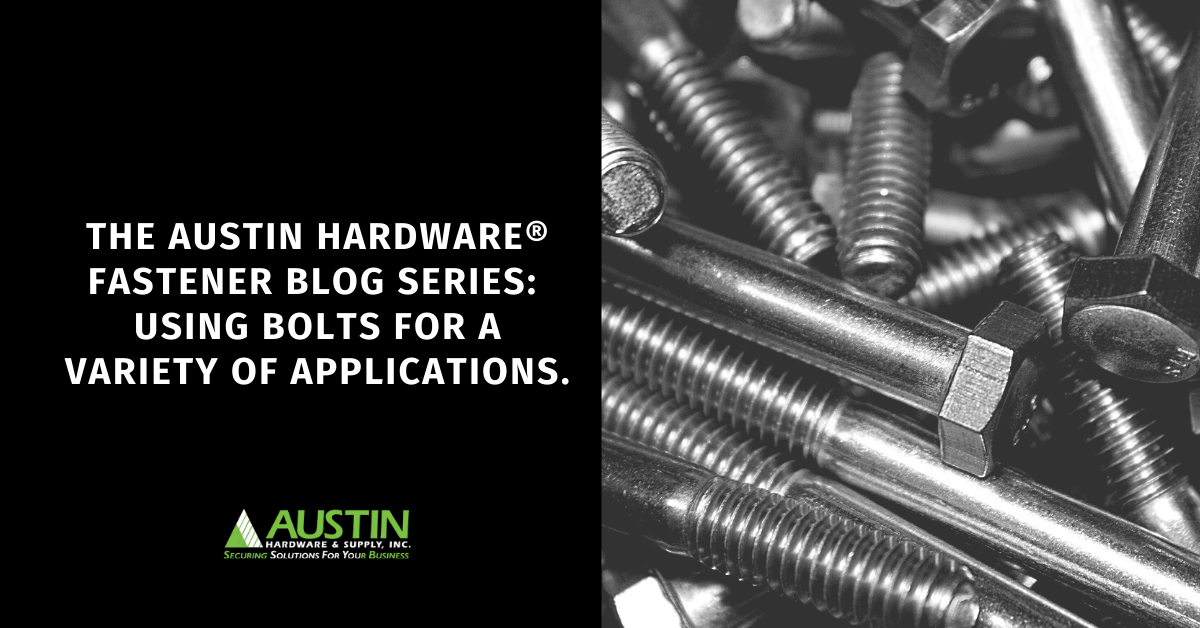
Solid rivets are one of the strongest permanent fasteners and are commonly used in applications where safety and reliability are of the utmost importance. This is why they are used frequently in the aircraft and auto industries.
Click here to learn more about Solid Rivets:
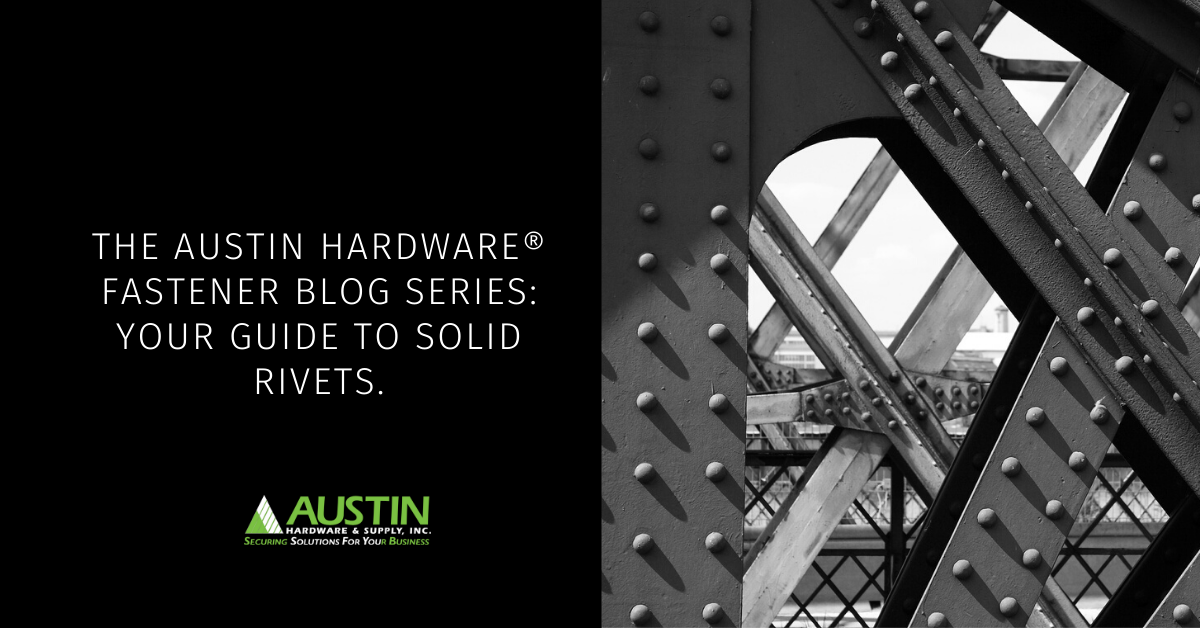
They’re found in applications including: household appliances and electronics to medical, telecom, and automotive equipment.
Click here to learn more about Self-Clinching Nuts:
Ordinarily, there are three grooves that can vary in length. They can run the entire way down the pin to as little as just one-third the length.
Applications include:
Click here to learn more about Grooved Pins:
Retaining rings are designed to restrict the movement of mating components and keep them securely in place during operation. By creating a shoulder to retain the assembly, retaining rings are a cost-effective solution, reducing the need for threaded fasteners or machining shoulders on to components.
Click here to learn more about E-Clips:
Thus, their use is common in the transportation industry and on commercial products such as washing machines where vibration is a significant factor.
Click here to learn more about Lock Washers:
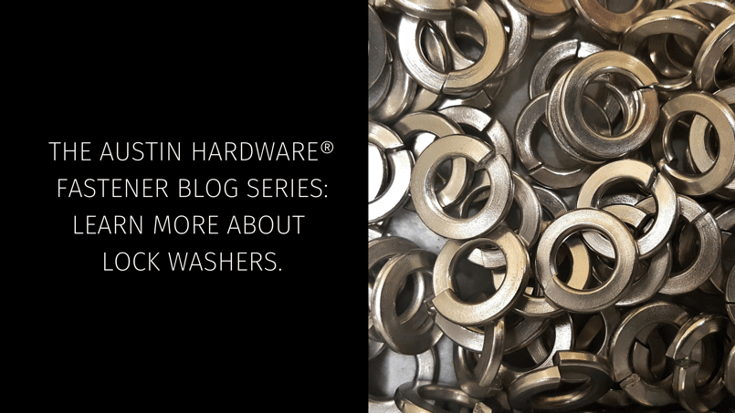
This is because an installed, fully swaged (cold-formed collar on the grooved pin) lockbolt has no gaps between the grooves of the pin and the swaged collar, as found in threaded fasteners such as nuts and bolts. It's essentially a best-of-both-worlds hybrid of a bolt and a rivet.
Click here to learn more about Lockbolts:
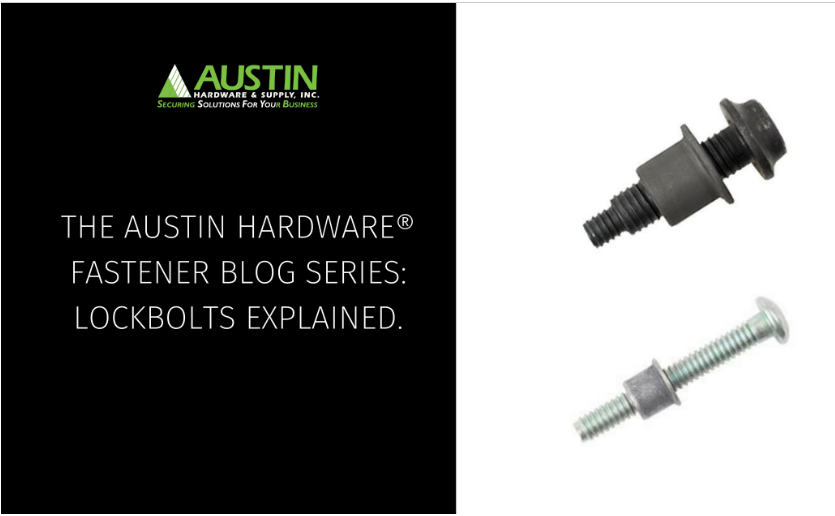
The blind rivet was originally developed as a replacement fastener for solid rivets where service repair was required. Blind rivets also trace their roots to the aircraft industry.
4-PART SERIES:
Part 1 - History / Two Most Important Factors to Maximize Joint Integrity
Part 2 - Additional Critical Factors to Determine Joint Integrity / Rivet Selection / Head Styles
Part 3 - The Most Common Blind Types and Their Functional Differences
Part 4 - Other Variations of Blind Rivets
The BOM® is a blind, oversized (ranging from around 5/8” to ¾” diameter), mechanically locked fastener. The unique push and pull installation design allow for the ultimate in locking strength from a blind-side installation.
Click here to learn more about Blind Bolts:
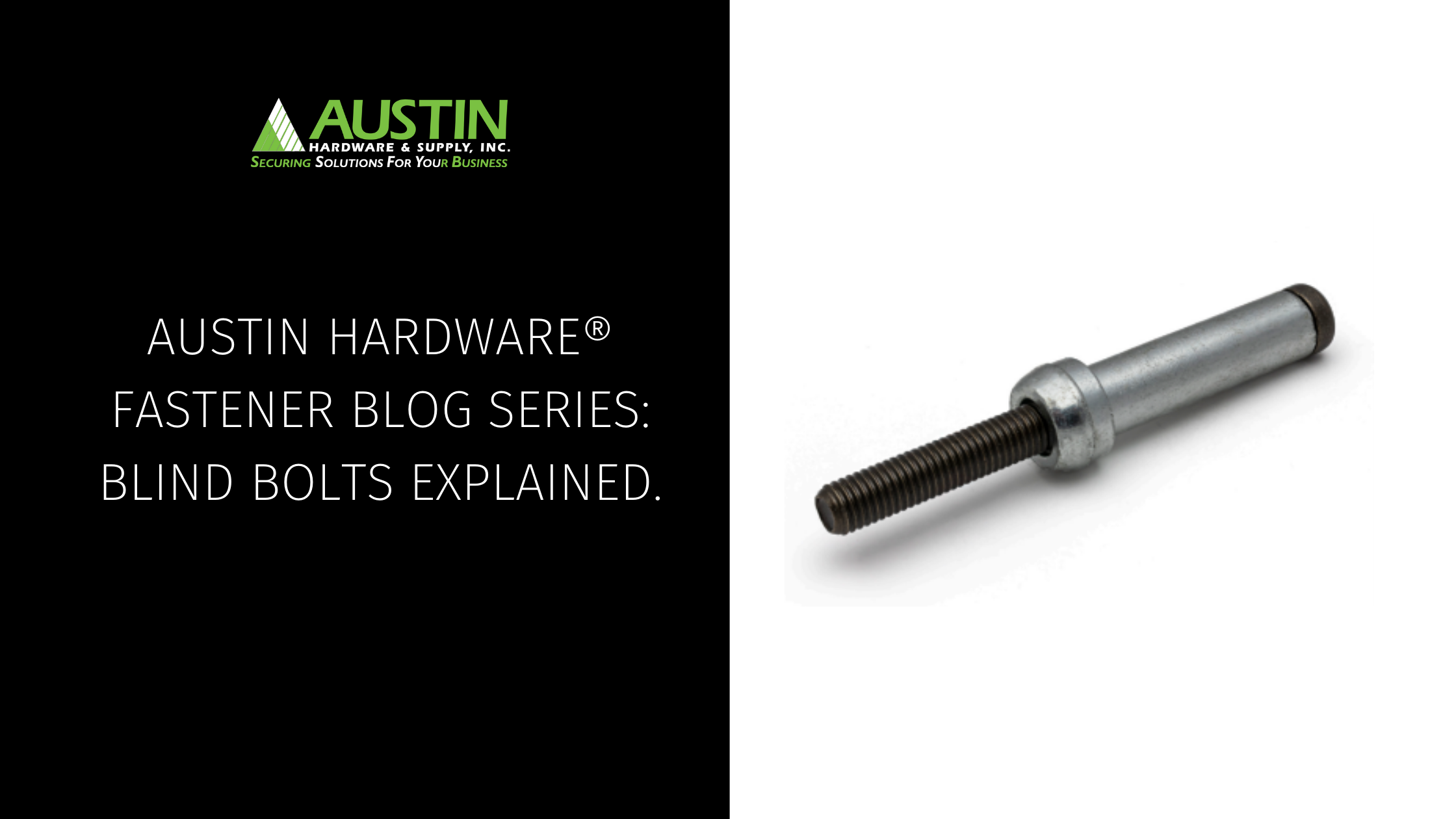
Fastening Nuts have a threaded hole and are used along with a mating bolt to attach two or more parts. Most of us think a lot more about the bolt than the nut for our applications, but they're no less important. In these two posts we'll break down the most common standard nuts, as well as take a look at locknuts.
Click here for Part 1 on Standard Nuts
Click here for Part 2 on Locknuts
Fill out our form and an Austin Hardware® solutions consultant will contact you!
"Since my company entered into a vendor managed inventory program with Austin, our service levels and in-stock position on our parts have never been better. We consolidated 23 suppliers down to one, Austin.
Now we only have one invoice to review, one shipment to check in and we are in stock 99% of the time! Austin has one of the best customer service teams we work with, I would recommend this program to anyone who needs to take control of their inventory and be sure to have the parts you need on the shelves!"

Gary from Ohio
"I wanted to send along some great news. We have experienced a few problems with shipping over the years, but the solutions that you put in place over the last few weeks have been very positive. On another note, Tom and Emma, the Vendor Managed Inventory team that I have been working with, have done a great job responding to concerns and questions in a timely fashion. That fact is another reason our VMI program is successful and getting stronger every day. Our overall numbers continue to increase and we are looking forward to the growth in 2017."

Shawn from Texas